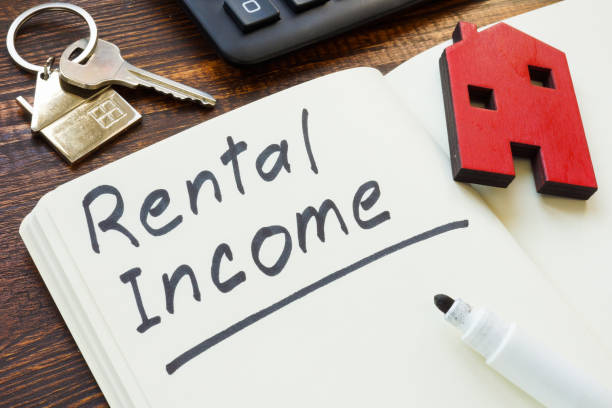
As a property owner in Canada, understanding how the Canada Revenue Agency (CRA) expects you to report rental income is essential. The CRA rental income guidelines for 2024 have specific requirements that every landlord, whether new or experienced, should be aware of. Failing to report your rental income correctly can result in penalties, audits, and unnecessary stress.
In this guide, we’ll walk through everything you need to know about CRA rental income: what qualifies, how to report it, deductions you can claim, and key updates for 2024.
What Is Considered Rental Income?
Rental income is any payment you receive for the use of a property you own. It can include residential properties like apartments, houses, vacation homes, and even rooms within your own home. According to CRA, rental income may include:
-
Monthly rent from tenants
-
Additional payments for utilities
-
Fees for parking or storage
-
Any other form of payment related to property use
It’s important to note that rental income must be reported in the year it is earned, not necessarily when it is received.
Rental Income vs. Business Income
There’s a distinction between rental income and business income. If you offer services in addition to basic utilities—like daily cleaning, concierge, or food—it might be classified as business income. This changes the type of tax form and deductions you must use.
If your rental activities involve significant services or multiple properties with employees, consult a tax professional to ensure proper classification.
How to Report CRA Rental Income
For individual landlords, rental income is reported on Form T776 – Statement of Real Estate Rentals. This form allows you to detail your rental income and claim any eligible expenses.
The amount from Form T776 is then included on line 12600 of your T1 personal income tax return.
Corporations and partnerships must report rental income differently, typically through T2 Corporation Income Tax Return or T5013 Partnership Information Return, respectively.
What Can You Deduct from Rental Income?
To calculate your net rental income, you can deduct certain expenses from the gross rental income. These expenses must be directly related to earning rental income and can include:
-
Property taxes
-
Mortgage interest
-
Utilities paid by the landlord
-
Repairs and maintenance
-
Insurance premiums
-
Advertising for tenants
-
Property management fees
-
Legal and accounting fees
-
Depreciation (Capital Cost Allowance)
Remember, capital improvements (like adding a new roof or finishing a basement) are not deductible as current expenses but can be added to the property’s capital cost.
Common CRA Rental Income Mistakes to Avoid
-
Failing to Report All Income
Many landlords underreport income, especially when dealing with cash tenants or short-term rentals. CRA can audit bank records and third-party platforms like Airbnb to verify. -
Misclassifying Expenses
Repairs are deductible, but improvements are not. Mixing the two can lead to incorrect claims and possible audits. -
Ignoring Shared-Use Property Rules
If you rent part of your home (e.g., a basement suite), you must allocate expenses proportionally between personal and rental use. -
Overlooking GST/HST
While most residential rental income is exempt, some rentals (especially short-term or commercial rentals) may be subject to GST/HST.
CRA Rental Income Updates for 2024
In 2024, the CRA has emphasized the need for transparency and accuracy in rental income reporting. New digital tracking systems and information sharing agreements mean that rental income is more easily traceable.
Key changes include:
-
Increased scrutiny of short-term rentals: Platforms like Airbnb and Vrbo are required to report user earnings.
-
Digital records compliance: Landlords are encouraged to keep electronic copies of receipts and agreements.
-
Tenant tax credit awareness: In some provinces, tenants are claiming tax credits, which flags unreported rental properties to the CRA.
Landlords should make it a habit to maintain detailed, organized records and consult with a tax advisor if they are unsure about compliance.
Should You Incorporate Your Rental Business?
Some landlords consider incorporating their rental operations to benefit from lower corporate tax rates and limited liability. However, there are downsides, such as additional legal fees, complex filing requirements, and potential loss of the principal residence exemption.
Generally, incorporation makes more sense if you own multiple properties or plan to grow your portfolio significantly.
Penalties for Failing to Report Rental Income
The CRA can charge:
-
Penalties for late filing
-
Interest on unpaid taxes
-
Gross negligence penalties (up to 50% of the unpaid tax)
-
Criminal prosecution in extreme cases
If you’ve failed to report rental income in the past, you can use the Voluntary Disclosures Program (VDP) to correct previous errors without facing harsh penalties.
Conclusion
Navigating the CRA rental income guidelines in 2024 is more important than ever, especially with increased digital oversight and regulatory updates. Whether you’re renting out a basement suite, a condo downtown, or managing multiple properties, staying compliant is key to avoiding tax headaches.
If you’re unsure how to correctly report your rental income or need help optimizing your tax return, Tax Headaches can help. Our team of experienced tax professionals specializes in rental property taxation and CRA compliance. Let us take the burden off your shoulders and ensure you’re fully covered.